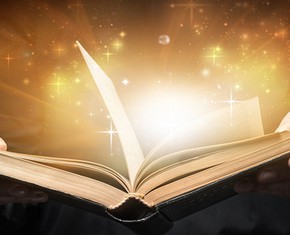The views expressed in our content reflect individual perspectives and do not represent the authoritative views of the Baha'i Faith.
As a child, my education in Catholic schools imprinted on me an expectation that one day the world would end, humanity would raise up from the dead, and we would all stand in judgement before God.
 Some people would go to Heaven. Everyone else would go to Hell. History would end. Everything would disappear. The souls of all people would slide into the passive eternity of their divinely chosen fate. So long as I practiced Catholicism, I saw this as our destiny. Years later, when I learned about the Baha’i Faith, I learned about a way of interpreting and anticipating the great apocalyptic event foretold in Jewish, Christian, and Islamic prophecy that departed substantially from my familiar understanding.
Some people would go to Heaven. Everyone else would go to Hell. History would end. Everything would disappear. The souls of all people would slide into the passive eternity of their divinely chosen fate. So long as I practiced Catholicism, I saw this as our destiny. Years later, when I learned about the Baha’i Faith, I learned about a way of interpreting and anticipating the great apocalyptic event foretold in Jewish, Christian, and Islamic prophecy that departed substantially from my familiar understanding.
One of the first things to know about the Baha’i understanding of the “end-times” is that life goes on afterwards. Not only does the universe continue to exist, but human society remains. Everything looks and feels similar on the outer surface—but the inner spiritual life of humanity embarks on a new cycle in its progression.
In this much friendlier concept of the end-times, one stage in human existence comes to a close, and a new one begins. God confirms what he has revealed in past eras by giving humanity a new body of divine guidance for the current day and age. In this case, with this new cycle, Baha’u’llah revealed for humanity the teachings that will enable us to take up the greatest endeavor in our history: the construction of a world civilization in which all people can fully develop their spiritual and material powers. About this new revelation Baha’u’llah wrote:
This is the Day in which God’s most excellent favors have been poured out upon men, the Day in which His most mighty grace hath been infused into all created things. It is incumbent upon all the peoples of the world to reconcile their differences, and, with perfect unity and peace, abide beneath the shadow of the Tree of His care and loving-kindness. – Gleanings from the Writings of Baha’u’llah, p. 6.
One aspect of this vision of the end-times is that it doesn’t take our free will away from us. We remain responsible for our actions.
In the traditional view I grew up with, there would be no choices to make and no great deeds to perform on or after the Day of Resurrection—God would be the only one doing the acting. But in the Baha’i view, when God raises us to a new life, it isn’t the life of the body, but rather a life of spiritual awakening. Those who respond to this new message have the awe-inspiring mission of helping bring humanity into its collective maturity. It is the duty of those who have attained this new life to awaken others to its power and significance. When I became a Baha’i, one of the biggest shifts in thinking for me was in seeing the Day of Resurrection not as a finish line but as a starting gun.
This interpretation of the end-times was hugely controversial when the Baha’i Faith was first established in Iran over 150 years ago. Many people in that society were horrified that Baha’u’llah’s predecessor, the Bab, taught that the human world as we know it wouldn’t end with the end-times. Not only that, his followers, known as Babis, enthusiastically acknowledged his claim to be the initiator of that event!
One account from the early history of the Baha’i Faith in Iran vividly illustrates how this perspective permeated the hearts and minds of the Bab’s and Baha’u’llah’s followers. It tells the story of a spiritually precocious child, named Ruhu’llah, and an anonymous, high-ranking religious leader that he and his brother encountered in the street:
Ruhu’llah and his brother were walking in the streets of Zanjan one day when a be-turbaned, awe-inspiring mujtahid could tell by the clothes the boys were wearing that they were not natives of Zanjan. “Whose children are you” he asked them. Ruhu’llah answered: “We are the sons of Varqa of Yazd.” “What is your name?” the mujtahid enquired of the boy. “My name is Ruhu’llah,” [which means ‘Spirit of God’] the child replied. “Oho! What a great name!” said the mujtahid. “This is the title of His Holiness Jesus Christ who raised the dead!” “If you will ride a little more slowly, sir,” was Ruhu’llah’s prompt reply, “I, too, will raise you from the dead.” “You must be Babis!” growled the priest as he hastened along. – Gloria Faizi, Fire on the Mountaintop, p. 95.
Obviously, the mujtahid did not want Ruhu’llah to teach him the Bab’s message. It seems that, in his eyes, followers of the Bab and Baha’u’llah could be recognized by the way they present themselves as active participants in the Day of Resurrection.
Today, as public awareness of the Baha’i Faith spreads, more and more people are becoming active participants in that new day of resurrection.
Next: Blessed are the Eyes that See What You See
You May Also Like
Comments

















End of the prophetic cycle and the beginning of the Age of Fulfillment!
What do you think?
1Co 15:24 Then the end will come, when he hands over the kingdom to God the Father after he has destroyed all dominion, authority and power.
1Co 15:25 For he must reign until he has put all his enemies under his feet.
Thank you